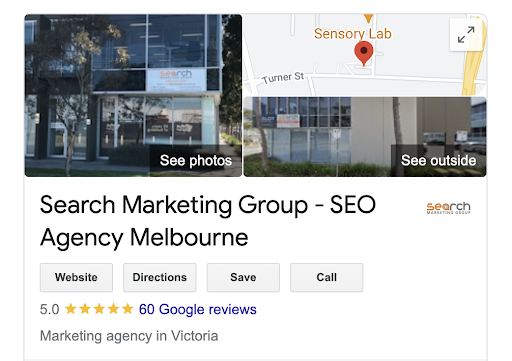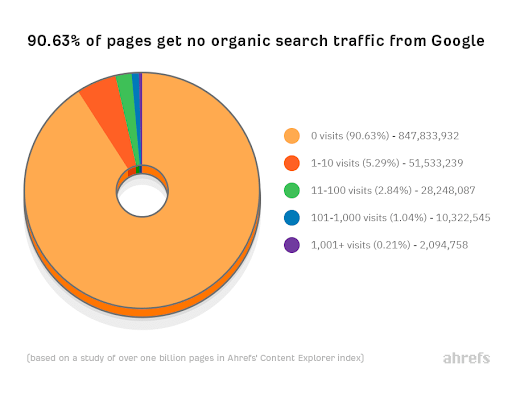We all want to be recognized for our hard work. For businesses, that recognition comes in the form of the coveted 5-star rating.
Everyone wants five stars to call themselves a 5-star business. Who wouldn’t? But unfortunately, it takes more than being good at what you do to get there.
If you’re wondering why you haven’t got more reviews or how to get 5-star reviews for your business, look no further. In this guide, we’ll show you exactly how to get 5-star ratings on Google, Facebook, and any other review platform.
Let’s get started!
The power of 5-star reviews
You know that five stars are good and 1 star-reviews are bad. And while it’s easy to take it personally as a comment on the quality of your business, reviews have far more power than we often realize.
It all boils down to this:
Humans are inherently social creatures. Therefore, we care A LOT about what other people think.
This is so ingrained in our psyches that 48% of people won’t even look at a business with less than 4 stars.
Of course, there is a delicate balance. Having all 5 stars can look too perfect, meaning businesses want to aim for a 4.7 or 4.9 average. It also means that the odd one or 3-star review won’t kill your business, so you can take a breath if you’ve been worried about that negative commenter who seems to have it out for you.
But at the end of the day, the more 5-star ratings, the better. So we’ll show you how to start bringing those reviews in droves.
How to get 5-star Google reviews
Not only do reviews account for 15% of your local SEO ranking, but they are also apparent.
As you can see below, our Google rating appears under our business when a potential customer searches for the ‘Search Marketing Group®.
Thankfully, we’ve brought in quite a few stars with our commitment to service. But if your customers are a little less happy…
…Well, it’s safe to say that your future customers will know about it.
So how can you make sure you get positive ratings? Here’s how you can get more 5-star Google reviews.
Keep doing what you’re doing – excellent work!
A quick note: before you can get a 5-star review, you need to give the customer something worth reviewing. You’re already delivering amazing products/services and customer service, so you should be covered.
But just in case, do a quick assessment of your business. Are there any areas where you could improve to generate more positive feedback? Have you received negative feedback on certain aspects of your business that you could take into consideration?
Of course, you’ll want to be careful with this. Many bad reviews out there tend to be fake, but it’s always worth considering the opinion of someone expressing genuine concern or letdown.
Ask every customer for a review.
What is the most reliable way to get 5-star reviews? Just ask.
Well, you can only ask for A review. But chances are you have a lot of satisfied customers who just aren’t taking the time to leave a review after their experience.
In fact, 70% of customers will be thrilled to leave a review for a business when asked.
So how do you go about it?
If you sell online or collect emails, simply send a follow-up email. Depending on the type of business you are in, you may want to send one immediately, or you may want to give people time to try and love your offering first. The choice is yours.
You can also put the call out on your social media accounts and display your request in-store.
Make it easy for customers to give you reviews.
Sure, most customers are happy to give you reviews. But they won’t jump through hoops to do it, so you want to make the process as easy as possible.
You can do this in several ways, including creating a custom link that sends customers straight to your reviews. Here’s how to create a custom Google review link.
You may also want to create a custom QR code for people on mobile devices and display these in your store, marketing material, and packaging.
Respond to reviews – even the negative ones.
Responding to reviews allows you to show appreciation for those who have left reviews and encourage others to follow suit.
And who knows? You might transform that 2-star rating into a 4 or 5-star with excellent customer service!
Apart from getting you more 5-star reviews, responding to reviews also helps boost your SEO, so this is a must.
Provide incentives
Some customers may love sharing their opinions or want to show their support, but others may need more prompting. There is a range of incentives that have been proven to work on customers, including:
- Receiving a product free of charge. While this may not be ideal for small businesses, perhaps you have a small item in stock that you could use or a service you could add on top for a customer.
- Receiving a product before everyone else. Those willing to give reviews are often your biggest supporters. Tempt them with a new item in stock that hasn’t been sold to your general public yet, and they’ll feel unique and valued.
- Discounts with your store or brand. Everyone loves getting a deal. This is one of the most typical incentives businesses use – for good reason. You get a review and another purchase, with hopefully more to come. Consider offering a 5-10% voucher for anyone who gives you a review or something like free shipping.
- Loyalty points with your store or brand. This may be the most doable for small businesses, as it doesn’t require you to give away stock or price things lower. And it is quite adequate, with 59% of consumers saying they’d be happy to leave a review in exchange for loyalty points. Not to mention that a good loyalty program is a great way to keep customers longer!
How to get 5-star Facebook reviews
As with Google reviews, Facebook reviews are essential to the buyer’s journey. Not only will they be seen by people looking up your business on Facebook, but Facebook pages also often rank on the results page whenever anyone searches for your business.
We can see below that our Facebook page is the second result when searching for Search Marketing Group® our Facebook page is the second result.
And under that result? Our 4.6-star rating.
Now, it is possible to disable ratings for your Facebook. However, this is an excellent opportunity to build trust with your customers and show them that others have received value from your business.
Provided that you can get those 5-star reviews, of course.
Most of the tactics we explored with Google reviews also apply to getting 5-star Facebook reviews. However, some other ways you can get reviews that are more specific to Facebook are explored below.
Make sure your reviews are set up.
Turned your reviews off at some point? Here’s Meta’s guide to turning on Facebook page reviews and ratings.
Ask customers to check in.
Facebook prompts people who have checked into a place to leave a review. So if you have a brick-and-mortar store, encourage your customers to check in while visiting – either verbally through your employees or with a reminder in-store.
This lets Facebook do the heavy lifting for you and means you can get reviews without asking!
Create a Facebook post asking your customers to leave reviews
As we explored above, many people just need to be asked in order to leave a review. Create a Facebook post asking for reviews and a link to your reviews – chances are, your followers will be happy to comply.
Keep your Facebook updated.
People will be far more likely to engage with you on Facebook – including leaving you reviews – if you’re active. Make sure you’re posting on a regular basis and give your customers fresh, exciting content that augments their experience with you in the real world.
Don’t have time to keep up with your socials? Our social media marketers can take care of everything for you. Book a free consultation today.
Wrapping up
We’ve shown you how you can get 5-star reviews for your business and boost your online reputation. While we only focused on Google and Facebook, the same principles apply to TripAdvisor, Yelp, Trust Pilot, and any other review site.
So go forth and get those stars!
For more digital marketing advice, check out our Blog . You can also reach out to our team of digital marketing strategists – we’ll be happy to chat about how you can improve your online reputation.
Our SEO Agency Ballarat, SEO Agency Bendigo, SEO Agency Adelaide, SEO Agency Sydney, and SEO Agency Brisbane services are planned and executed with the highest level of precision and thoughtfulness, leading to excellent results and satisfaction for the clients.





















































